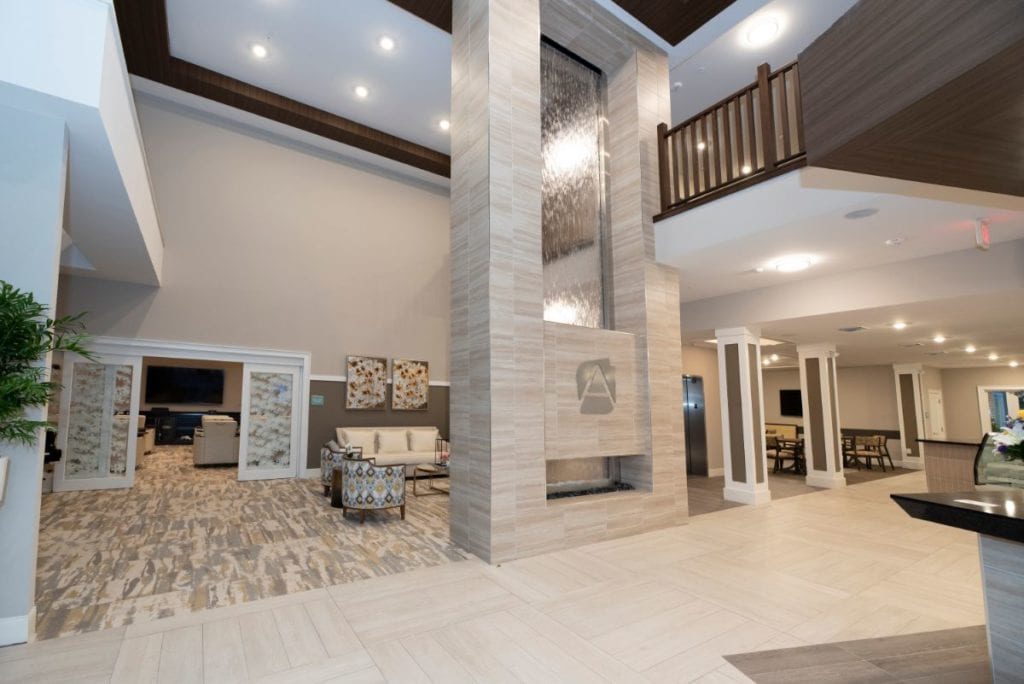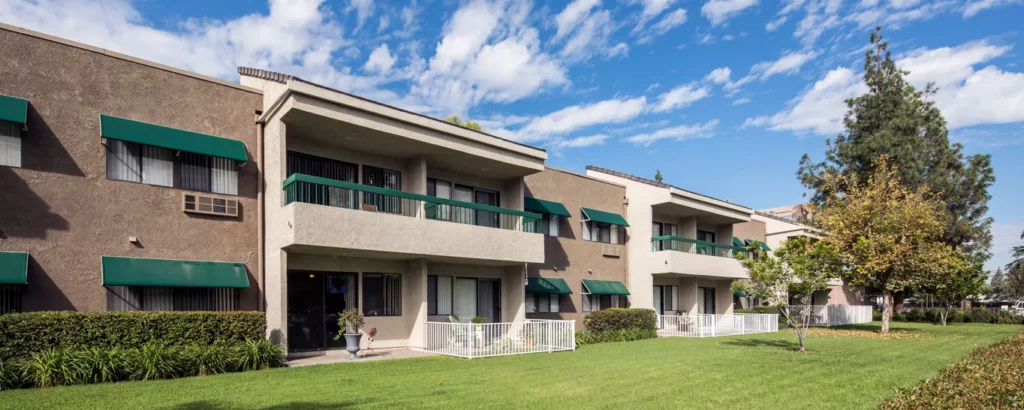The ongoing, unprecedented wave of investors flocking to senior housing is contributing to a widening disconnect between mission-driven operators and investors pushing for larger, faster returns on their investments. Management fees paid to operators have emerged as one battleground leading to strained relationships and struggling projects.
The root of the disconnect is in a lack of communication, Bild & Co. Director of Client Strategy and Operations Jocelyn Schrader told Senior Housing News. Investors, particularly those new to the space, have a lack of understanding regarding senior living’s operational intensiveness. Operators, conversely, appear unable or unwilling to inform investors of the demanding nature inherent in senior housing.
This has resulted in a perception on the part of operators that ownership is only looking for a fast yield on a property, and owners believe that operating companies are not incentivized to improve operations in an expedited manner. Bild & Co., a Tampa, Florida-based senior housing sales and marketing consultancy, works with investors and operators to find common ground on management fees. But the disconnect goes beyond simple transparency, Schrader told SHN.
“There is a preconceived notion that each side believes the other knows more about their end of the relationship and the business than they do. Even sharing reports and information is not an even level of communication,” she said.
One way to bridge the gap lies in incentivizing operators to meet performance metrics that would increase the percentage of management fees paid to an operator, allowing them to share the upside of improved performance with investors. This is a practice that is commonplace in the hotel industry. The CEO of one major senior living operator, Eclipse, believes that the industry may be headed toward this fee model, and at least one senior living ownership group is experimenting with a version of this approach that could lead to fees as high as 10%.
Where standard fee practices fall short
Third-party operators typically receive a fee of around 5% of total revenues from investors to manage a community, Bild & Co. founder and CEO Traci Bild told SHN. This is backed up by data from the 2019 State of Seniors Housing report from HealthTrust and a variety of industry associations. Management fees averaged about 5% for independent living and assisted living, according to the report. For standalone memory care, which typically has fewer residents, fees were slightly higher on average, at 5.3%. Average fees were lower, at 3.7%, for continuing care retirement communities.
But Bild has seen cases where owners attempted to cut that to as low as 2.5% with underperforming properties; one operator doing a solid job turning around an underperforming community was even faced with seeing its management fee cut to 3% at one community, because the investor did not see growth in occupancy revenue and net operating income. The owner expected the operator to put its own skin in the game, when it had none. The operator was so disheartened that it wanted to pull out of the agreement.
“We have to remember that we’re dealing with human beings. We can’t just make some blanket proclamation to turn over in short order,” she said.
 Aspire at Carriage Hill
Aspire at Carriage HillSolvere Senior Living enters management fee negotiations seeking 6% of NOI, Kristin Kutac Ward, president and CEO of Solvere’s parent company, Solutions Advisors Group (SAG), told SHN. St. Petersburg-based Solvere works with 16 different owners ranging from real estate investment trusts (REITs) to single investors, and usually receives either a management fee of 5% or a minimum dollar amount to operate a community, whichever is greater.
In order to capture the value of the real estate, you need to have the proper [operating] services in place. The better systems that are in place, the easier it is to scale and maintain performance.
Eclipse Senior Living CEO Kai Hsiao
One sticking point is that since most of the communities Solvere operates are newly constructed or in need of improved operations, owners do not account for the upfront expenses the operator must put up in order to stabilize the properties.
Because most of the operator’s work is done early in the relationship, when operations are at their most unstable and NOI is at its lowest, what some owners believe are generous management fee payouts wind up being spread across several underperforming buildings.
“Most of the work is done early, when the fees are the lowest. We’re fronting a lot of the business in human capital, particularly on turnarounds. There is a lot of time factored into that,” Ward said.
[Existing] agreements are lacking because they reward the operator for bringing in revenue, but not managing the business. That becomes a problem over time as they’re compensated regardless of operations. We want to align their interests with ours.
Senior Living Fund Chief Fund Manager Dan Brewer
One way to mitigate this is to negotiate a set management fee across a portfolio, while taking into account the varying needs of each community that makes up the total portfolio, Christian Living Communities (CLC) and Cappella Living Solutions CEO Terry Rogers told SHN. Cappella is the management and consulting division of Denver-based CLC, and manages 26 communities across seven states — 21 owned by partners ranging from REITs to development groups new to the senior living space.
“Management fees are based on the scope of work; some communities require more effort such as a new build from ground-up or a long-time underperforming community. I believe management fees should reflect the extra effort that is sometimes required in these situations,” he said.
The pace of M&A activity and the flood of new investors have resulted in a proliferation of third-party operators, Eclipse Senior Living CEO Kai Hsiao told SHN. Lake Oswego, Oregon-based Eclipse was founded in late 2017 and has quickly grown to become one of the largest U.S. senior living operators, with a portfolio of nearly 120 communities, and he believes that scale is a crucial differentiator for effective third-party management.
Larger operators have the foundation in place to provide consistent performance. Many smaller operators, on the other hand, lack the systems and processes to absorb portfolios they are not scaled to handle, Hsiao observed. Other smaller operators may be losing money in triple-net leases and do not have the liquidity to re-invest in their platforms.
“In order to capture the value of the real estate, you need to have the proper [operating] services in place. The better systems that are in place, the easier it is to scale and maintain performance,” Hsiao said.
“There is a preconceived notion that each side believes the other knows more about their end of the relationship and the business than they do. Even sharing reports and information is not an even level of communication
Bild & Co. Director of Client Strategy and Operations Jocelyn Schrader
Owners are willing to provide operators with more money to improve their platforms, but operators are loathe to ask out of fear that they will be seen as having their hands out all the time, Schrader told SHN.
“Owners and asset managers say they tell their operators all the time, ‘whatever you need, just tell us,’ and the operator doesn’t say this,’ she said.
Owners are also frustrated by what they see as a lack of urgency on the part of operators. As the disconnect with third-party operators grows, some owners are launching their own management platforms because they do not believe operators are incentivized to perform.
“Operators need to understand that the owner is their customer. Operators take a wait-and-see mindset. They’re always hoping [for improvement], but time is money to the owner,” Bild said.
New models emerge
Veteran senior housing investors recognize the challenges operators face and are looking at ways to incentivize the management fee structure so that it is mutually beneficial.
Senior Living Fund (SLF), a private equity fund based in Olathe, Kansas, is negotiating management fee contracts with its portfolio of operators that include incentives based on meeting performance metrics. Meeting these metrics could increase the management fee paid to operators to as much as 10%. The changing pace of the industry merits a new look at how management fees are structured, SLF Chief Fund Manager Dan Brewer told SHN.
In the hotel world, base management fees are typically a percentage of gross revenue and average around 3%, according to 2017 data from hotel management consultant firm HVS.
“Those agreements are lacking because they reward the operator for bringing in revenue, but not managing the business. That becomes a problem over time as they’re compensated regardless of operations. We want to align their interests with ours,” he said.
The three metrics that SLF is focused on are cost control, revenue generation and meeting pro forma timetables. Each metric may contain several triggers so that, even if an operator fails to meet one metric, they still get a higher percentage because the bottom line is improved. A typical operator manages between 10 and 50 properties for SLF. Negotiated across a portfolio, this incentive arrangement can add up quickly.
The time is right for the industry to consider adding incentives to management fee agreements, Hsiao told SHN. Because of operational parallels between the two industries, Hsiao has been a proponent of bringing more hotel practices — such as dynamic pricing and multi-brand portfolios — into senior living.
I believe management fees should reflect the extra effort that is sometimes required in these situations.
Christian Living Communities and Cappella Living Solutions CEO Terry Rogers
On top of these base fees, incentive fees are commonplace in the hotel world. These are tied to a hotel’s profitability rather than revenue; an example is 10%- 20% of operating cash flow after deducting an owner’s priority and funds deposited into the reserve for replacement. Hotel operators receive extra fees for things such as technical services and branding. A brand royalty makes sense in this industry, as a name like Hilton can go a long way toward driving occupancy. Senior housing brands might not have such heft today, but as companies like Eclipse put more effort into branding strategies — and well-known names like Canyon Ranch or even Martha Stewart enter the space — it’s possible to see how this might change in the coming years. Some branded hotels are operated on a franchise basis, and this too could be a model gaining traction in senior living.
Incorporating more incentive fees would provide operators with the resources needed to strengthen their platforms and upscale with fewer hiccups. Hsiao believes this shift is happening, but it will take time.
“If you subscribe to the theory that senior housing is 20 years behind hospitality [in management fee structure], we will see a shift to a hospitality-based [management fee] model. It will take time and resources to do that,” he said.
Companies featured in this article:
Bild & Co., Cappella Living Solutions, Eclipse Senior Living, Senior Living Fund, Solvere Senior Living


